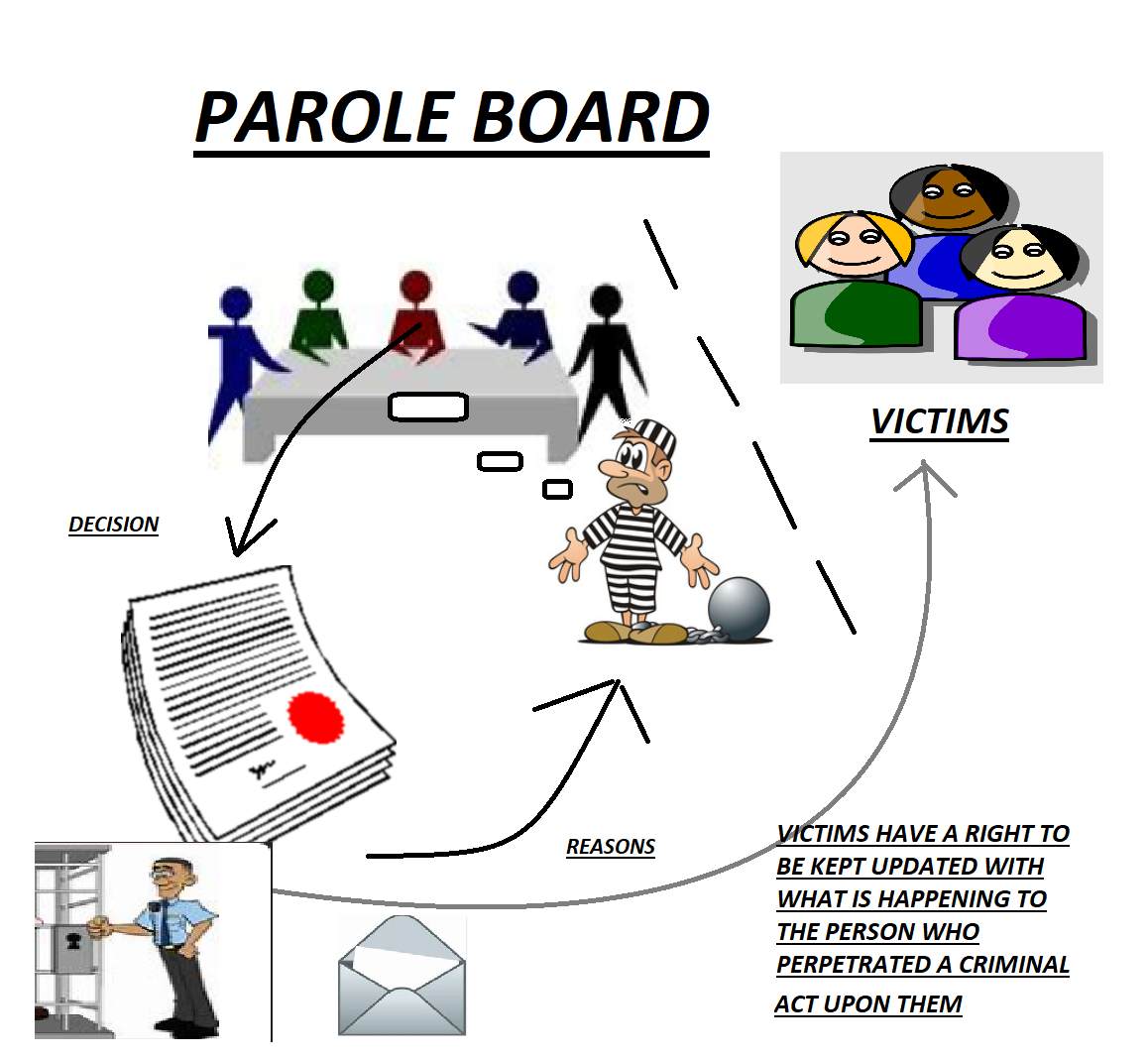R v Secretary of State for the Home Department, ex parte Pierson, 1998, AC 539 HL, 1997 UKHL 37
Citation:R v Secretary of State for the Home Department, ex parte Pierson, 1998, AC 539 HL, 1997 UKHL 37
Rule of thumb:Do a criminal victim and their family have a right to know about parole hearings and the early release of a prisoner? Yes, they do. They have to be updated on the status and be informed of the reasoning behind key decisions made.
Background facts:
The facts were that Pierson was a convicted double-murderer. Various clarifications were sought on how his prison sentence was to be handled.
Judgment:
The Court in this case affirmed various aspects about punishment for convicted criminals and the possibility for early release. The Court affirmed that with a custodial sentence the Judge must state a minimum period of custody to be served, and the maximum potential time to be served, with the Home Secretary having no power to increase or decrease either of these – retribution and deterrence is the matter for the Judge to consider, and risk to the public is the matter for the Home Secretary/Prison services to consider. The Court also affirmed that early release/risk to the public is to be decided according to standard principles, but that any recommendations of the Judge in relation to this must be taken into account and followed. The Judge also affirmed that the convicted criminal and the victim/victim’s family are entitled to be informed of all of these things.

Ratio-decidendi:
‘But in ending section 35(2) of the Criminal Justice Act of 1991, with its very wide power to release prisoners, Parliament left untouched the fundamental principle that a sentence lawfully passed should not retrospectively be increased … That brings me to the question whether any legal consequences flow from the characterisation of the Home Secretary’s function as involving a decision on punishment. It is a general principle of the common law that a lawful sentence pronounced by a judge may not retrospectively be increased’, Lord Steyn, ‘The minimum standard of fairness does not permit a person to be punished twice for the same offence. Nor does it permit a person, once he has been told what his punishment is to be, to be given in substitution for it a more severe punishment’, Lord Hope, ‘A power enacted by Parliament in general terms is not to be taken to authorise the doing of acts by the donee of the power which adversely affect the legal rights of the citizen or the basic principles on which the law of the United Kingdom is based unless the statute conferring the power makes it clear that such was the intention of Parliament… Where wide powers of decision-making are conferred by statute, it is presumed that Parliament implicitly requires the decision to be made in accordance with the rules of natural justice… However widely the power is expressed in the statute, it does not authorise that power to be exercised otherwise than in accordance with fair procedures…’, Lord Browne Wilkinson
Warning: This is not professional legal advice. This is not professional legal education advice. Please obtain professional guidance before embarking on any legal course of action. This is just an interpretation of a Judgment by persons of legal insight & varying levels of legal specialism, experience & expertise. Please read the Judgment yourself and form your own interpretation of it with professional assistance.

